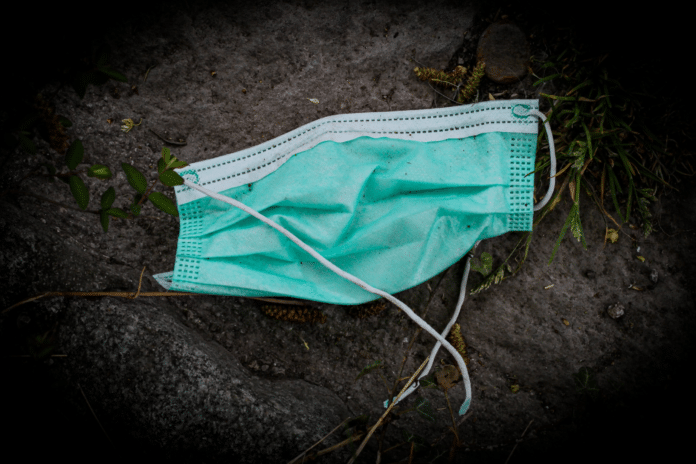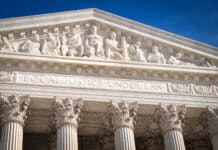States and cities that required people to mask up in public during the Omicron surge ostensibly sought to reduce COVID-19 transmission of the variant.
Now as numbers decline, it’s time to adjust, and thankfully many recently decided to remove masking policies. The CDC significantly eased mask guidelines Friday, and the mayors of Minneapolis and St. Paul lifted their mask mandates Thursday.
Explaining their justification for lifting those requirements, most governors, mayors, and public health officials cited the precipitous drop in daily new cases over the past month. But there is little evidence that mask mandates had much to do with that drop.
The seven-day average of new cases soared from mid-December to mid-January and fell just as rapidly in the five weeks since, consistent with how other countries emerged. Overall, there is no obvious difference between states with mask mandates and those without them.
Inept California leadership put their citizenry through two years of draconian nonsense, including re-requiring masks for indoor public settings in December, yet tellingly achieved similar infection rates to Florida, which had no mask mandates.
First, let's compare how they did on infections during Omicron surge
Strikingly similar (see graph)
Florida peaked earlier, California a bit later
Cumulatively, they had nearly identical infection rates
About 9.50% of Floridians got infected while 9.54% of Californians did pic.twitter.com/ITfO0b4btD
— Ashish K. Jha, MD, MPH (@ashishkjha) February 18, 2022
Age demographics also should be considered. The median Floridian is 43 years old, compared to 37 in California. Nearly one in four Floridians is over age 65. That’s the case for fewer than 20% of Californians.
If you compare California to Texas — the second most-populous state, also with no mask mandates — case trends are also similar, although the increase was steeper in the Golden State, where the seven-day average peaked earlier.
So states with mask mandates haven’t fared substantially better than the 35 wise states that didn’t re-impose them during the Omicron wave.
While some studies show that N95 respirators help reduce virus transmission, surgical masks reduced symptomatic infections by only a modest 10%. The same study found cloth masks that you see delusional colleges and K-12 schools requiring had no significant effect, other than being detrimental to children.
Beyond analyzing how effective masking is, a relevant question is what impact mask mandates have on human behavior. Because even if masking itself works, that does not necessarily mean accompanying mandates do.
A review of 21 observational studies last summer found mask mandates had benefits “in terms of reductions in either the incidence, hospitalization, or mortality, or a combination of these outcomes.” But, as or more importantly, “few studies assessed compliance to mask wearing policies or controlled for the possible influence of other preventive measures such as hand hygiene and physical distancing.”
The debate about mask mandates will undoubtedly continue. I had one over lunch today with an NPR-listening liberal.
But as I reminded the elderly fellow, anyone claiming mask mandates played a critical role in curtailing COVID-19’s spread is discarding most data and evidence, likely for political reasons or simple ignorance.
Two authors writing in Tablet Magazine encapsulated this disconnect well late last week, noting in part:
“Mask mandates are a microcosm of a key failure of our pandemic response: the poor climate for public discourse fostered by an elite culture whose overconfidence led to a prolonged strategy of undermining open discussion in a vain attempt to prove that complex questions could only have one universal and immutable answer.”
It’s too bad Drs. Francis Collins, Anthony Fauci, Michael Osterholm, and Rochelle Walensky likely won’t read that story.
A.J. Kaufman
A.J. Kaufman is an Alpha News columnist. His work has appeared in the Baltimore Sun, Florida Sun-Sentinel, Indianapolis Star, Israel National News, Orange County Register, St. Cloud Times, Star-Tribune, and across AIM Media Midwest and the Internet. Kaufman previously worked as a school teacher and military historian.

















